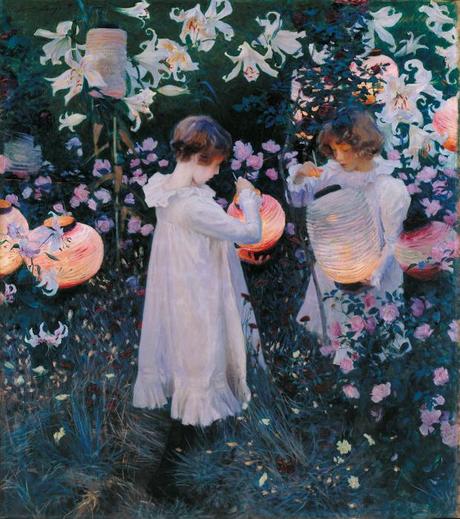
This is one of Persephone’s newest batch of books, and is an evocative, sensitively written and powerfully moving novel that was a pure pleasure to read. I raced through it in two sittings, and even found myself having a little cry at the end, which is always a sign of a good book. It is the story of forty something Helen, a thinly fictionalised Rosalind, whose early life set against an idyllic yet rather unconventional background of wealth, intellect and privilege is destroyed by the First World War. She grows up with her two much-loved cousins; confident, talented Guy and sensitive, introverted Hugh, at Yearsley, a beautiful Georgian manor house in the country made up of honey-coloured, flower-filled rooms furnished in faded chintz where it seems to be forever summer. Helen and Hugh share a particular closeness; they understand one another completely, and as they grow older and more self-aware, it is clear that their feelings run much deeper than that of brother and sister. However, this knowledge pushes them apart as they enter their teen years, and unable to manage their emotions, they spend less and less time together. Before long, Helen is left alone as Guy and Hugh go up to Oxford, but after she finishes school, she enjoys being part of their cosmopolitan, intellectual crowd in Oxford and London, where they all gravitate as they enter their twenties.
Life is full of friendship, fun and frivolity, but beneath the surface of this seemingly privileged existence, Helen is haunted by the distance between herself and Hugh. Knowing she cannot have him, she drifts into a relationship with Walter, a rather dry and earnest academic, who, much to the chagrin of her friends and family, she marries. Shortly afterwards, war breaks out, and Helen must watch her beloved cousins and friends go off to fight, while she struggles alone with the responsibility of a growing family in her grotty house in North London. Life, which once seemed so full of beauty and possibility, has irreparably darkened. She doesn’t love Walter, life has become a daily grind of childcare and housework, and the war is a greedy spectre, sucking joy and hope from the world. As the inevitable casualties start to roll in, Helen, consumed with grief and regret, is devastated to realize that her world as she knew it has been destroyed, and there will be no going back.
I think what made me find this book so touching is because really it isn’t about war at all, but more the way in which life often takes us in directions we didn’t plan for, leaving us cast adrift from the vision of the future we believed we would have. There is a tone of such melancholy in Murray’s words, perfectly exemplified when she says ‘And this is all that has happened. It does not seem very much…I was happy when I was a child, and I married the wrong person, and someone I loved dearly was killed in the war…that is all. And all those things must be true of thousands of people.’ The lost opportunities, the private sorrows, the secret grief that courses under the surface of all of the perfectly ordinary people we see every day…it’s really quite an overwhelming thought. As such, The Happy Tree, despite its name, is not exactly an uplifting read, but it’s certainly a thought provoking, searingly honest portrayal of a woman’s life, and I loved every minute. I wish Rosalind Murray’s other novels were easier to come by, as her writing is definitely something I’d love to explore further.
